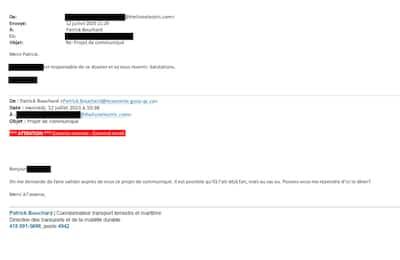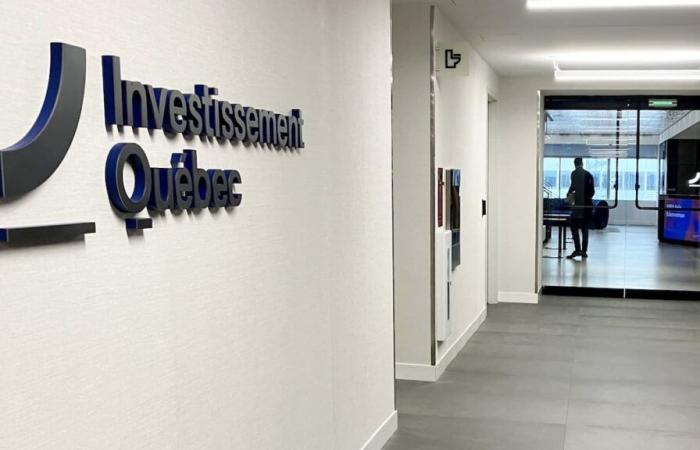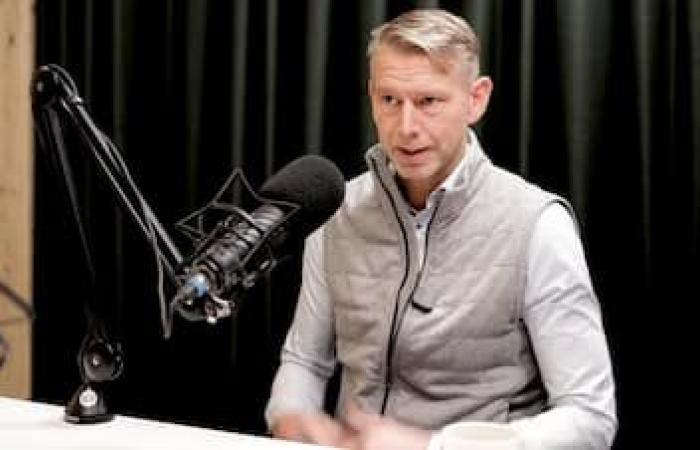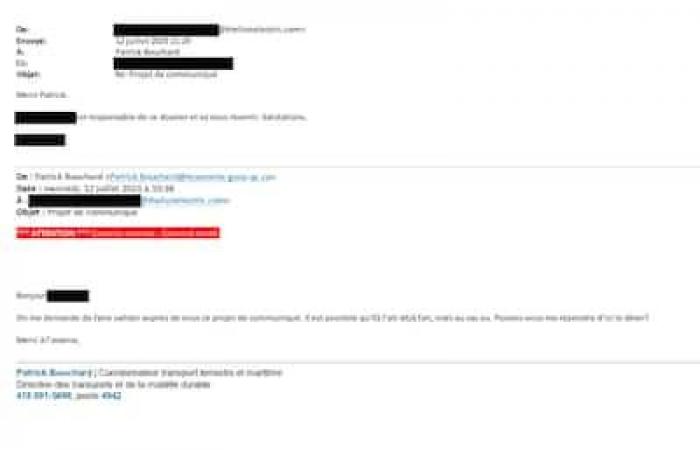Despite hundreds of millions in public funds paid to Northvolt and Lion Électrique, the Ministry of the Economy and its investing arm refuse to reveal their exchanges with the bosses of these largely subsidized companies.
• Also read: Quebec accused of not having studied enough the risks linked to its battery sector
• Also read: Investissement Québec keeps secret a document on the risks linked to battery waste
At the end of October, The Journal asked Investissement Québec (IQ) for all the exchanges between Peter Carlsson (CEO of Northvolt at the time) and Paolo Cerutti (CEO North America of Northvolt) with senior management of IQ.
The only document that was provided to Journal was a short greeting email from Peter Carlsson, dated March 8, 2022, to the former CEO of IQ, Guy LeBlanc, with Simon Thibault (the former senior director of battery strategy at IQ, who moved to GM) in certified copy.
“Thank you Guy. I was also energized by the discussion! We’ll talk soon. Peter,” we can read (in English).
Provided by Investissement Québec
To explain her refusal to provide the two other documents concerned, Danielle Vivier, director of access to information at IQ, evokes the need to hide “confidential” and “personal” information.
IQ refuses to transmit these correspondences to protect its industrial secrets and those of Northvolt.
Photo provided by IN GOOD COMPANY
Laconic email
In mid-September, The Journal also asked the Ministry of Economy, Innovation and Energy (MEIE) for its discussions with Marc Bédard, CEO of Lion Électrique, for two years. During this period, the company received a little more than $50 million in aid from the ministry.
The ministry cited the same reasons as IQ for its refusal to transmit its exchanges.
Once again, the only document transmitted was a terse email in early October.
“Thank you Patrick. [Passage caviardé] is responsible for this file and will get back to you quickly. Greetings.”

Provided by the MEIE
“Innocuous email”
According to Michel Séguin, professor and ethics expert at UQAM, it is normal that organizations cannot say everything for reasons of strategy and confidentiality.
“But between that and saying nothing, that’s one thing,” he believes.
“They must justify the reasons why they respond with an innocuous email,” analyzes the ethics expert.

PHOTO TAKEN FROM THE UQAM WEBSITE
“If these organizations want to maintain a relationship of trust with the entire community, they must organize themselves to make this demonstration. They have the responsibility to manage their image of integrity,” he concludes.
Do you have any information to share with us about this story?
Write to us at or call us directly at 1 800-63SCOOP.









